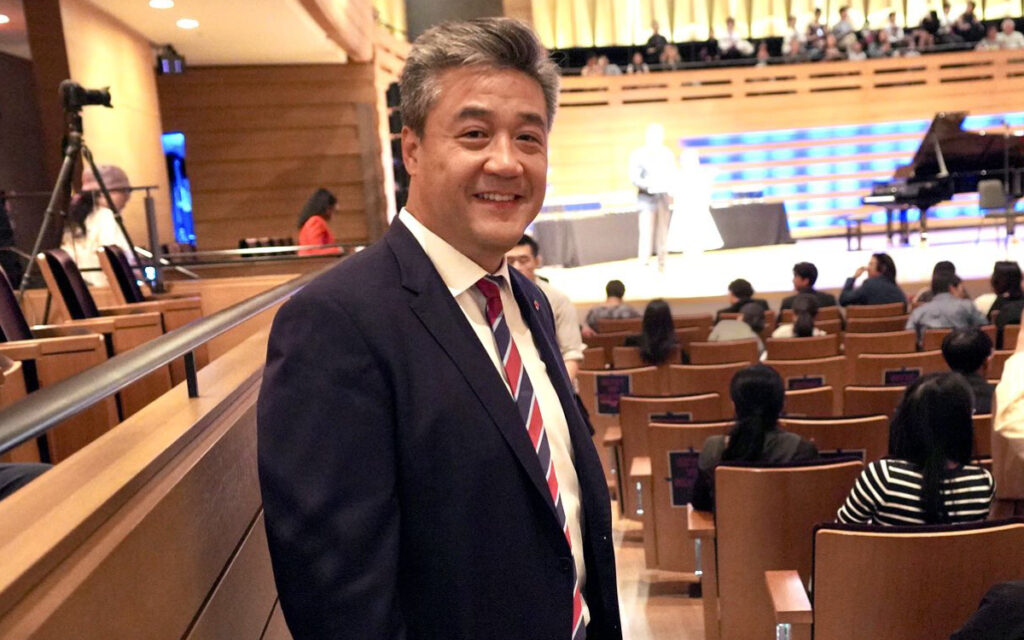
If there is one lesson to be taken away from this public inquiry exercise, it’s this: we shouldn’t wait until interference campaigns are successful to notify Canadians of what is happening in their electoral districts. Pictured: Former Liberal MP Han Dong. Photo Credit: Han Dong/X.
After more than a year of speculation and unnamed sources and media reports blowing the whistle on the size, scope and extent of alleged Chinese meddling in Canada’s electoral system, the federal public inquiry on foreign interference is set to wrap today.
With that, the Trudeau government will soon have recommendations in hand that will provide guidance on how best to shore up Canada’s defences against nefarious regimes seeking to influence the outcomes of our free and fair elections.
The inquiry has largely been a success, through no fault of the government who initially botched the process with the appointment of former governor general David Johnston as special rapporteur.
Some of the big questions about who knew what, and when, have been answered. Broadly speaking, most everyone who took to the proverbial witness stand admitted that foreign interference occurred in the 2019 and 2021 federal elections.
This is important for two reasons.
First, we now have a universal truth in hand. Some level of foreign interference by China occurred. This fact puts to rest the game of he said, she said between CSIS whistleblowers and the Trudeau government.
Second, we know that Prime Minister Justin Trudeau, members of his cabinet, as well as his staff, had some awareness of the threat posed to Canada’s electoral system.
Where opinions differ is the level of interference that occurred and whether it was in fact effective in its intended goal.
Based on answers provided in his testimony, we know that Trudeau was briefed about “irregularities” regarding a nomination process involving former Liberal MP Han Dong, who now sits as an independent. In response to questions about the CSIS intelligence, Trudeau said: “I didn’t feel there was sufficient or sufficiently credible information that would justify this very significant step as to remove a candidate.”
In terms of other election related cases of interference, Trudeau maintains that he didn’t learn about these instances until after the fact.
It’s important to note that both Trudeau and former Conservative leader Erin O’Toole agreed that interference attempts by China did not change the outcome of the 2021 election. However, one could reasonably assume that we had to have the public inquiry in the first place because the threshold for public notice about foreign interference in our electoral system is too high.
If the media hadn’t dogmatically reported on the issue, none of this intelligence would have ever come to light. Trudeau questioned the validity of the data and didn’t seek further clarity or deem it in the public interest to sound the alarm.
If there is one lesson to be taken away from this public inquiry exercise, it’s this: we shouldn’t wait until interference campaigns are successful to notify Canadians of what is happening in their electoral districts. Moreover, power shouldn’t be concentrated in the hands of decision makers who have a direct stake in the outcome of said elections, be it a nomination race, by-election, or general election.
Once testimony wraps, Justice Hogue will issue her recommendations and hopefully provide a roadmap for the federal government to establish an independent process to share information about foreign interference, as well as lower the threshold for public notice. With a federal election expected within the next 18-months, time is running out to make the necessary changes to present further erosion of our democratic systems.

Josie Sabatino is a Senior Consultant at Summa Strategies, focused on providing strategic insight and helping clients meet their objectives in an ever changing and complex political and regulatory environment. Prior to joining Summa, Josie spent nearly a decade in political communications and most recently served as the Director of Communications to the Hon. Erin O’Toole, former Leader of the Official Opposition.




















